As you may know, I'm chronically ill. I have PTSD and suspected brain damage from an accident. It's not easy, it's not fun, but above all, it's NOT a reason to stop living my life. Because by focusing on completely different things, and especially on things I can do, my life has become so much more enjoyable. In this blog post, you can read all about entrepreneurship facing obstacles.
moreGetting Started - About 'Growing Into It', Benefits, and Trials
I get a lot of questions about how I decided to start, whether I knew back then how many hours a day I could do something, how it would affect my benefits, and so on. To be perfectly blunt: I don't have an answer to this. I grew into it. I started painting for myself, but at a certain point I found it so demotivating to immediately put the finished drawing in the closet. That's when I started my Etsy adventure. My first cards were a huge flop, but they did give me the opportunity to explore, practice, and grow. That single order already raised my stress level so much that I lay awake for nights waiting for the package to leave, because "YUCK... I feel pressure, someone's expecting something from me, I 'have to' do something... panic!" In retrospect, I'm glad I started so slowly and was able to really grow into it. I no longer experience stress from 20 outstanding orders or a lost package (yes, that happens very occasionally). But what mental steps I had to take!
The same goes for my benefits. I found it all very stressful, but now I can completely let it go and follow my own path. I do remember well the period when, in the back of my mind, I kept the UWV (Employee Insurance Agency) watching over everything I did... it took so much energy and was incredibly paralyzing. It kept me focused on being sick, while there could be so much benefit in shifting my focus to 'living'. I consciously worked hard on this and also flipped a switch somewhere. I can't spend the rest of my life focused on the UWV and benefits; I want to enjoy life, see how far I can go, and discover all the possibilities in this new life!
What is possible, rethinking
That, I think, was precisely the major turning point in my illness. From a broken little bird on the couch, sad, panicking because nothing was working and I could no longer participate in "normal" life, to being completely okay with who, what, and how I am. For this, I first had to get to know myself and my limitations (with a lot of trial and error). That wasn't fun, but thankfully, there was help. Once I started to understand what worked and what didn't, I was able to focus more and more on "what is possible."
I think I spent a year consciously trying to see things in my life from a perspective that they could be done (believe me, that creates a completely different energy than focusing on what's not possible). For example, I could easily paint for an hour; walking in a quiet spot in nature calmed my system, which led to hiking (even if it wasn't long distances) becoming my new hobby; I could celebrate Christmas better when my family came over so I didn't have to travel and could lie down in bed in between; I could actually read children's books (and I really enjoyed them) even though the complicated books I used to read were no longer possible.
You get it, I was reshaping my own life. I started enjoying it more and more, because how often do you get the chance to thoroughly examine your life and completely reshape it to suit you?!
To this day, I think as much as possible in possibilities and solutions; it's become a habit. And, looking at my business, it's one that's paying off! But it's not just about thinking in possibilities; it's also about choices.
Essentialism
Making choices about how you spend your energy. I've become quite rigorous about it (and I love it!), but I started with a lot of effort. I wanted to do everything, set high standards for myself, wanted to please everyone, and of course, didn't disappoint anyone. Unfortunately, that doesn't go hand in hand with taking good care of yourself, especially not with a disability.
I read a book about essentialism (well, I scanned it and picked out relevant things) and suddenly understood what I had to do. It's funny, it's actually already ingrained in me; one of my core values (you know the ones) is decisiveness!
Essentialism is about being able to distinguish between the "vital few" and the "trival many." You focus on what's highest on your priority list. For example, I review what needs to be done each week and prioritize accordingly. Many things can be very energy-intensive (like proofreading this text, which I don't do because it takes too much energy) while yielding little or no benefit. I see many creatives, freelancers, and friends around me struggling with this. I choose the things that give me the most (also in terms of maintaining balance, of course; this isn't just about business ;-)). So if an afternoon of painting is good for me, that ranks higher on my list than answering emails!
Smart working
Over the past few years, I've been obsessing over my calendar, scrutinizing my own thoughts to discover where I could work smarter. Things that take up far too much energy might not be necessary at all, or could be easier (long live the day I bought a label printer and no longer had to retype addresses, which was mentally exhausting! Suddenly, I could pack twice as many orders, yay!). Other things I could perhaps stop doing, or even ask for help. For example, I decided to ship with DHL because the parcel point is just around the corner and I can take the dog inside, so I can easily combine a walk with delivering packages.
For me, smart working also involves planning. Now, after years of struggling, my energy levels are finally reasonably stable, so I can finally make a plan. Each year, I decide which major projects I want to tackle. Last year, those were my picture book and the Advent calendar, whatever else is needed (like a calendar or birthday calendar), and the rest are small projects I tackle on the side that I don't plan.
This is my course, and my schedule is fluid (I follow my body). I get a lot of questions about how I handle deadlines. Well, I give myself as few deadlines as possible! I'm aware that this requires some discipline (which I possess quite a bit), so don't think this is the holy grail of "working with a disability." And of course, there are always "sort of" deadlines, but I make sure I plan everything very generously, and I'm generally finished a month ahead of my own deadlines—wonderful!
Daily schedule
Now let's zoom in a bit: I know my course, I also know roughly what I want to do in the coming week, and then it's a matter of smart planning and execution! For example, I never schedule administrative tasks on a day when I have a lot of orders to pack (administration can always wait), far too many stimuli! I alternate drawing (it's relaxing) with work that my mind struggles with more (like answering emails). I rest every day from about 12 to 3 p.m., don't do anything after 6 p.m., and don't allow myself to start my day until after a cup of tea, sometime between 9:30 and 10:00 a.m. You guessed it, there's not much time left! So, during that time, I want to work as efficiently and purposefully as possible. I make a list of the things I want to do that day, prioritize them, and then get started. But...
What if I have a bad day?
Well, nothing. If I absolutely have to (and there's very little that really does), I ask for help or see how I can solve something (you can also email customers that their order will be delayed a day or not promise anyone when your newsletter or blog will be online) and then I take a break.
Things sometimes go wrong
Well... I sometimes push myself too hard. It's in my nature; I actually love working hard, but it doesn't work out the way it used to. So sometimes things go wrong. Where I used to get really angry at myself for "doing it wrong" or saying, "It's my own fault," I'm more relaxed about it these days. I shrug my shoulders, clear my calendar (if it was already full), and start taking care of myself (and often paint, that's where all those cards come from ;-)). It's all part of it! And of course, I sometimes get stressed about a long list of orders that still need packing or an overflowing mailbox. But I always find a solution for that too!
Building self-confidence
Slowly but surely, I learned to trust myself. That it's perfectly okay to be yourself and that it's perfectly fine to show that! I also really appreciate having my focus taken off of being ill; it's become a side issue. Living my passion is now much more important and enjoyable. It might not seem like much to others, or it might not mean much to my "business," but for me, it's incredibly important, a huge part of my happiness, and it gives me a sense of belonging, even though I do almost everything in my pajamas ;-)

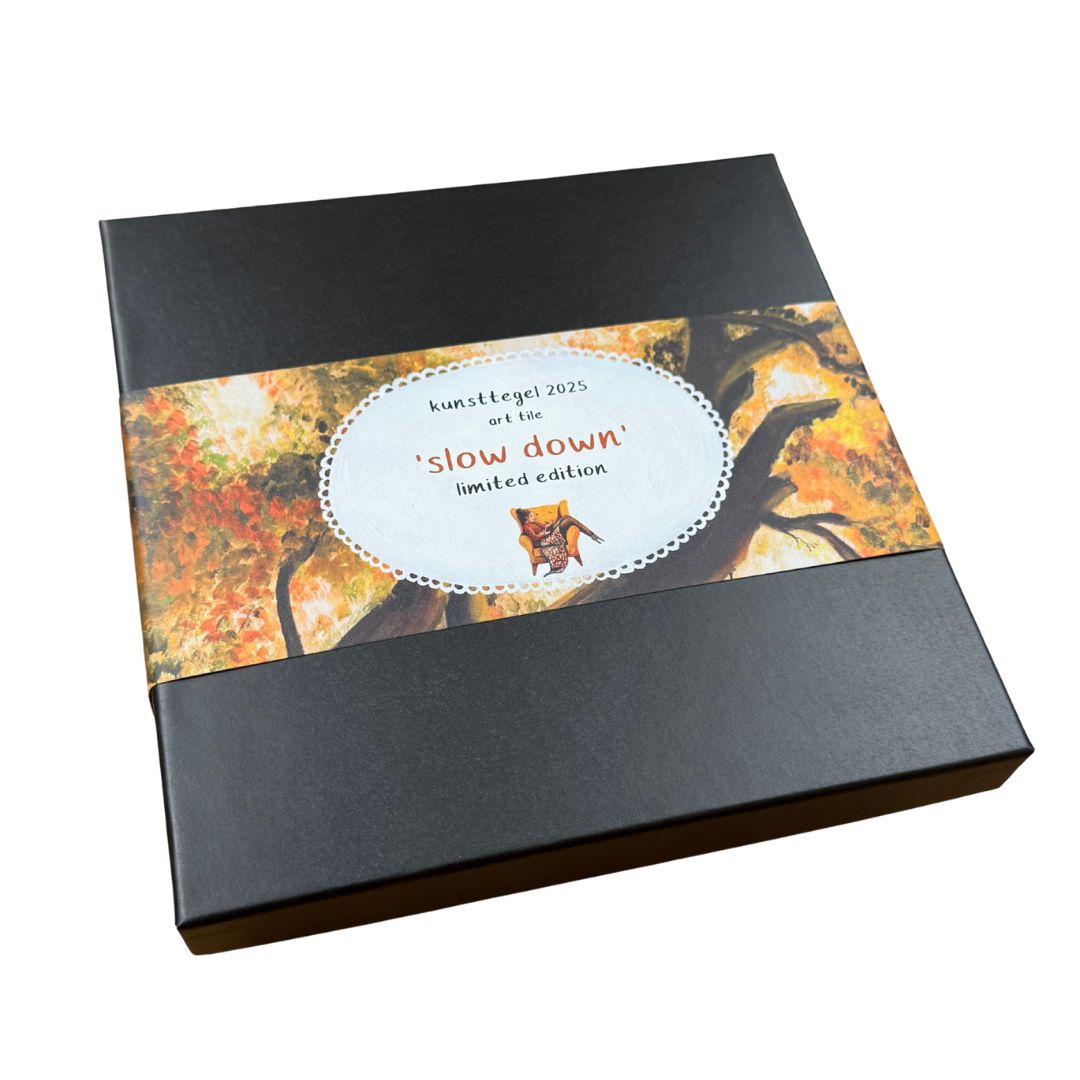
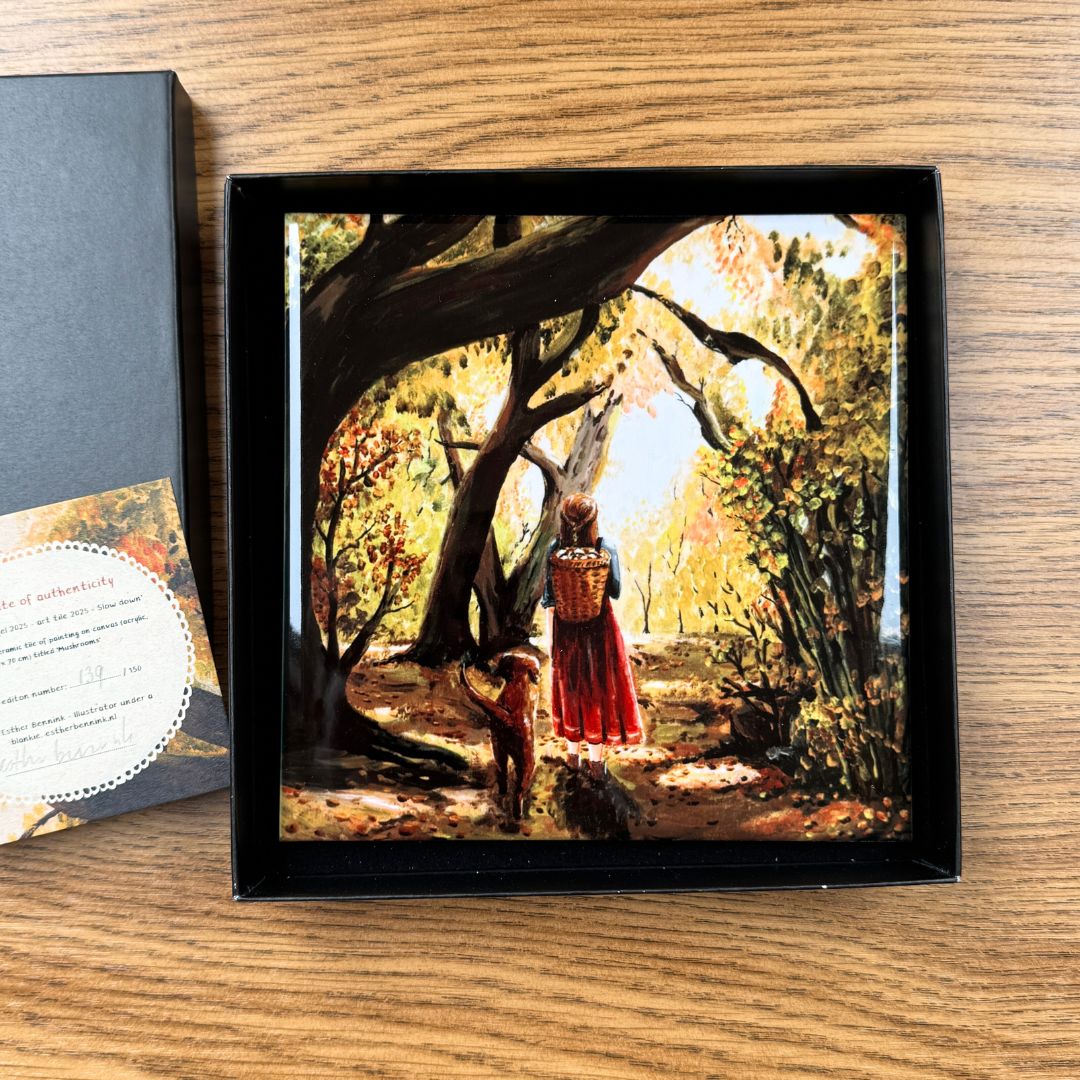
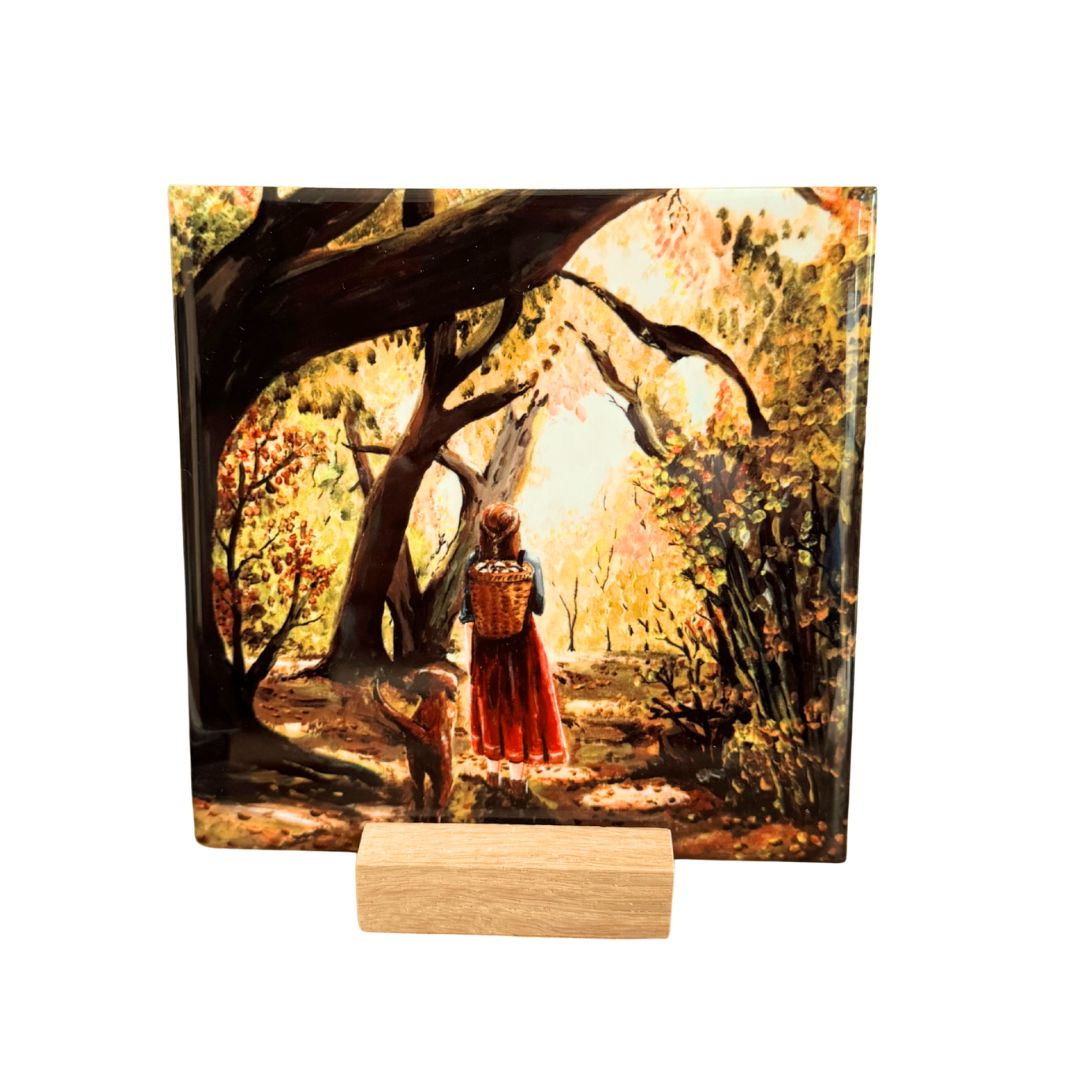
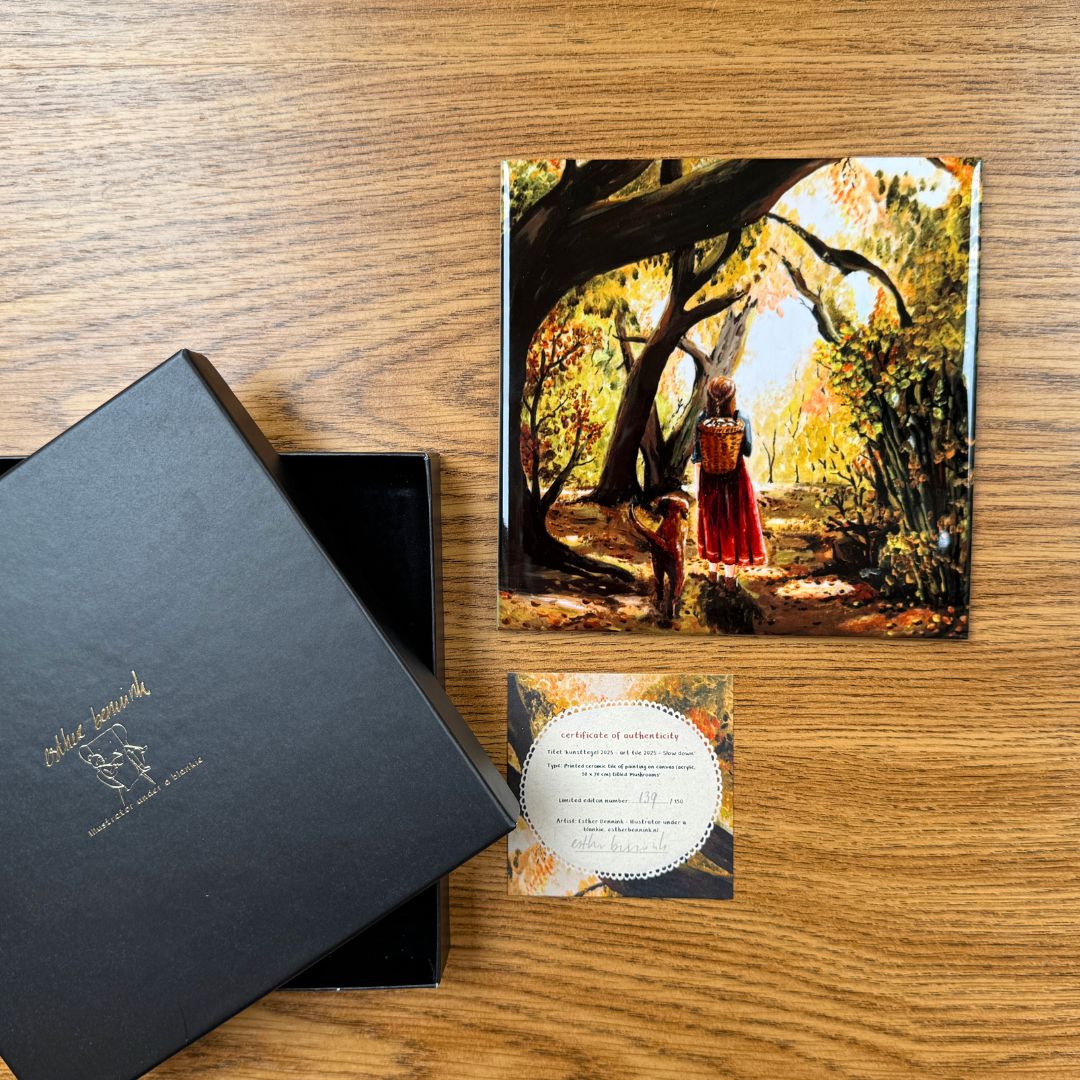
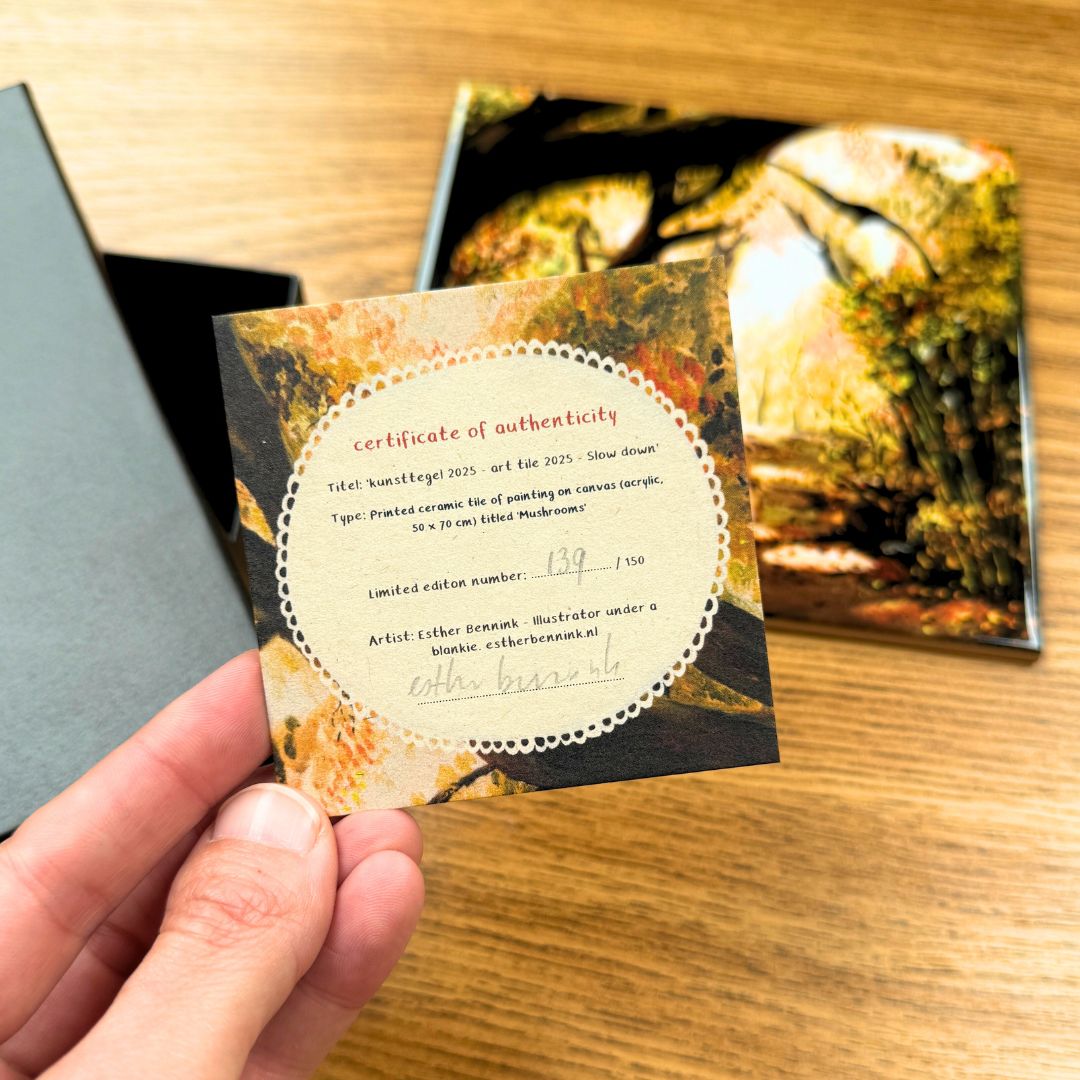
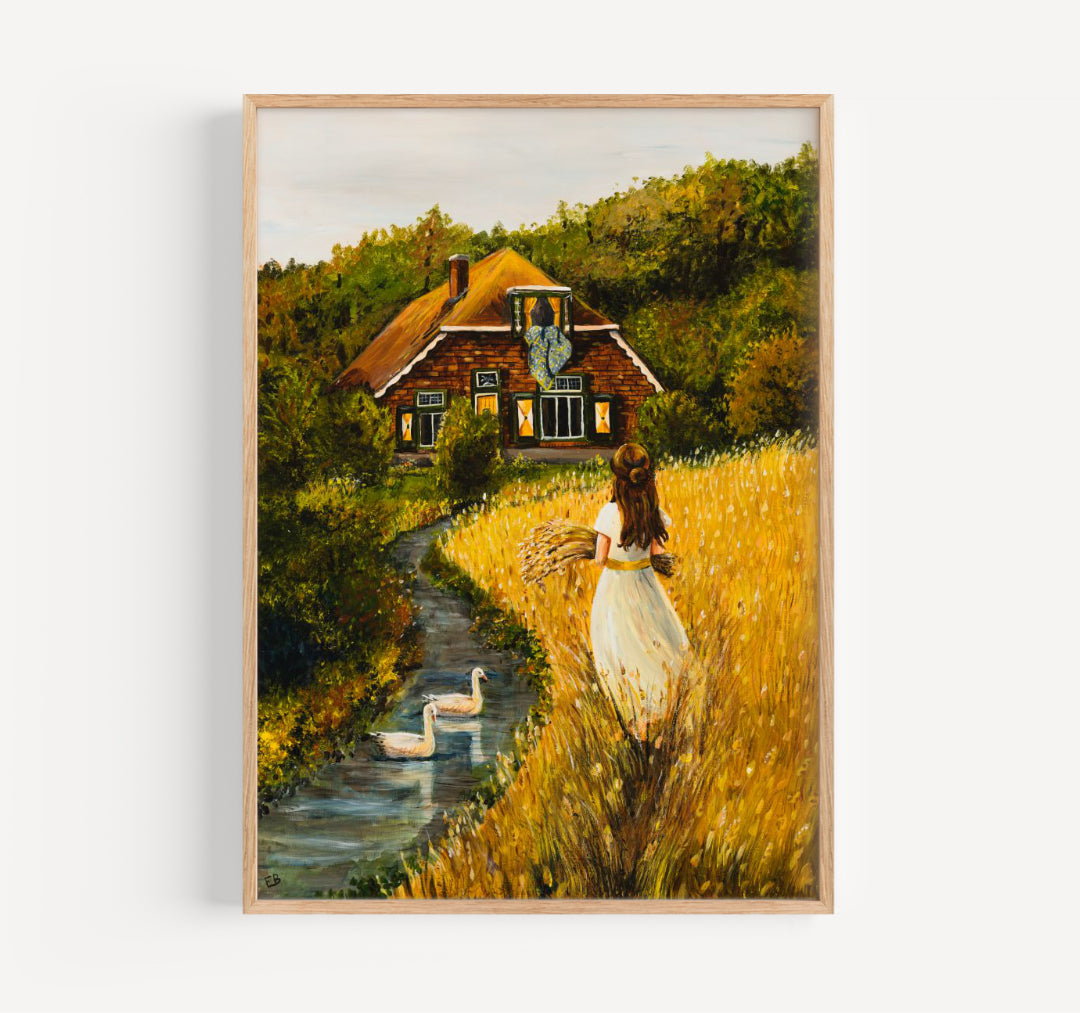
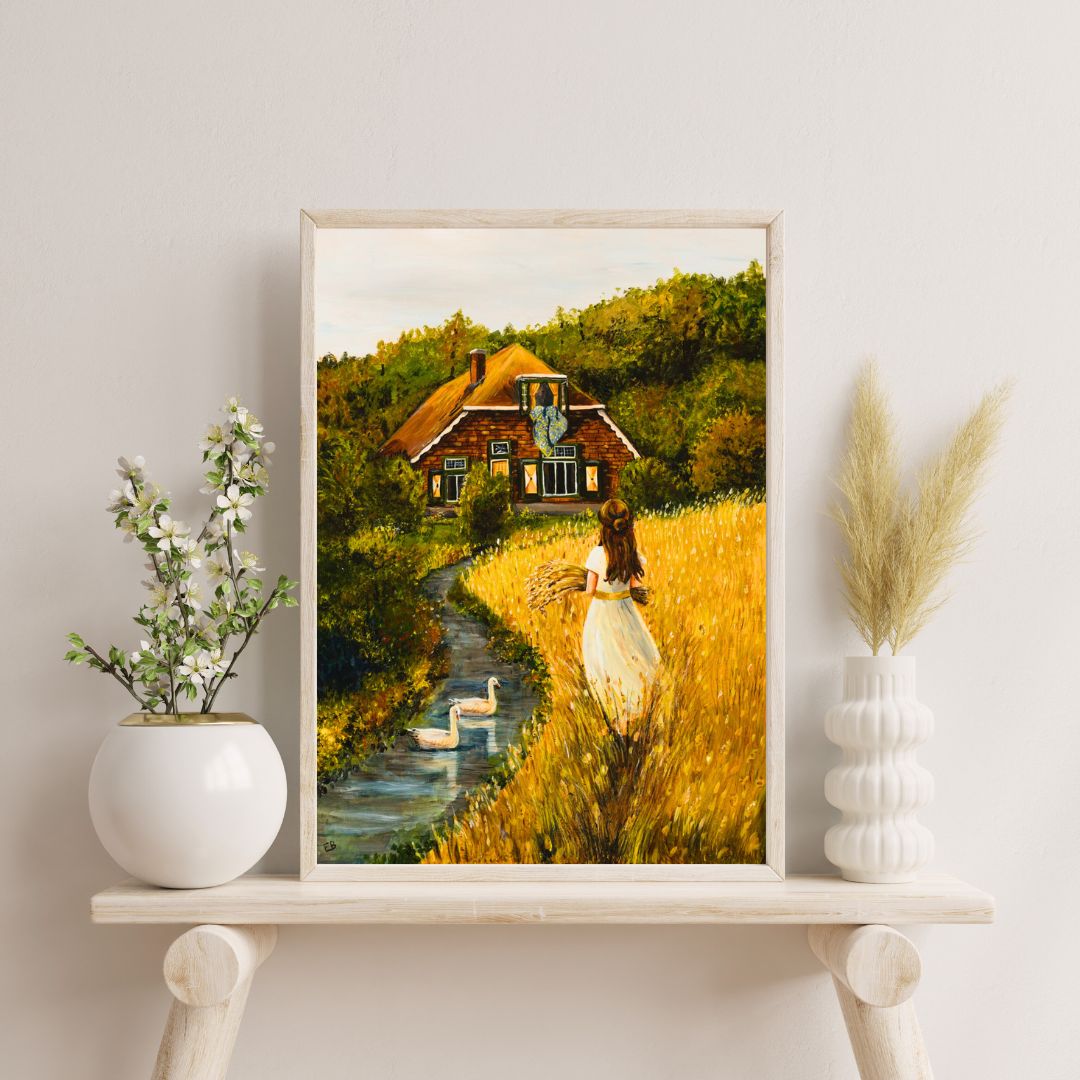
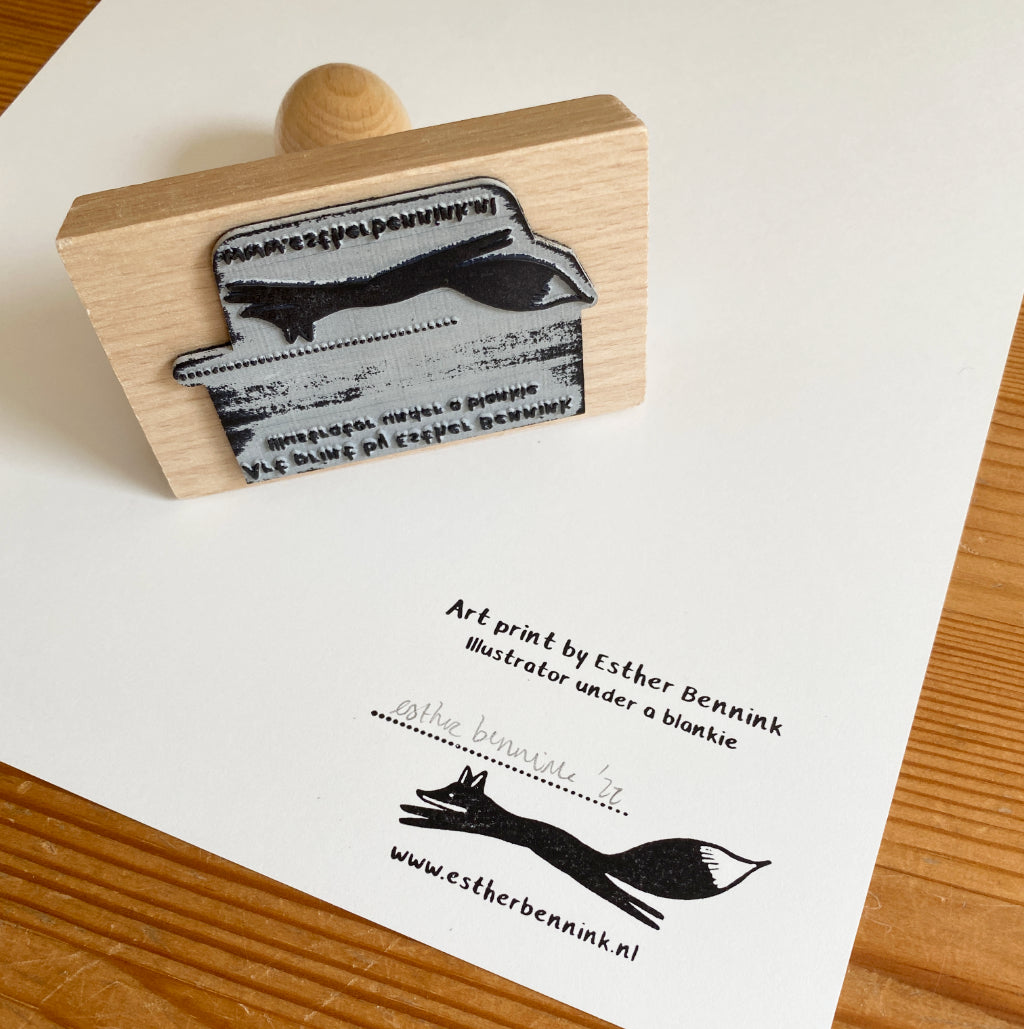


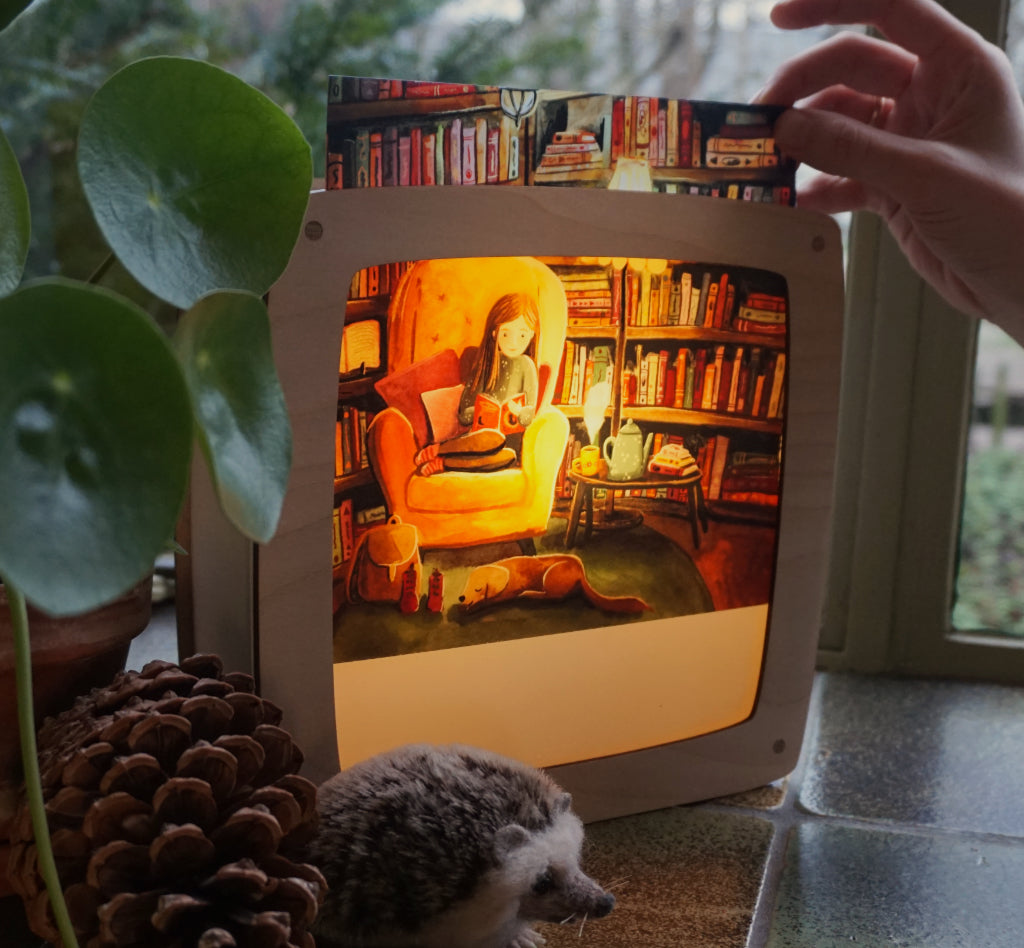

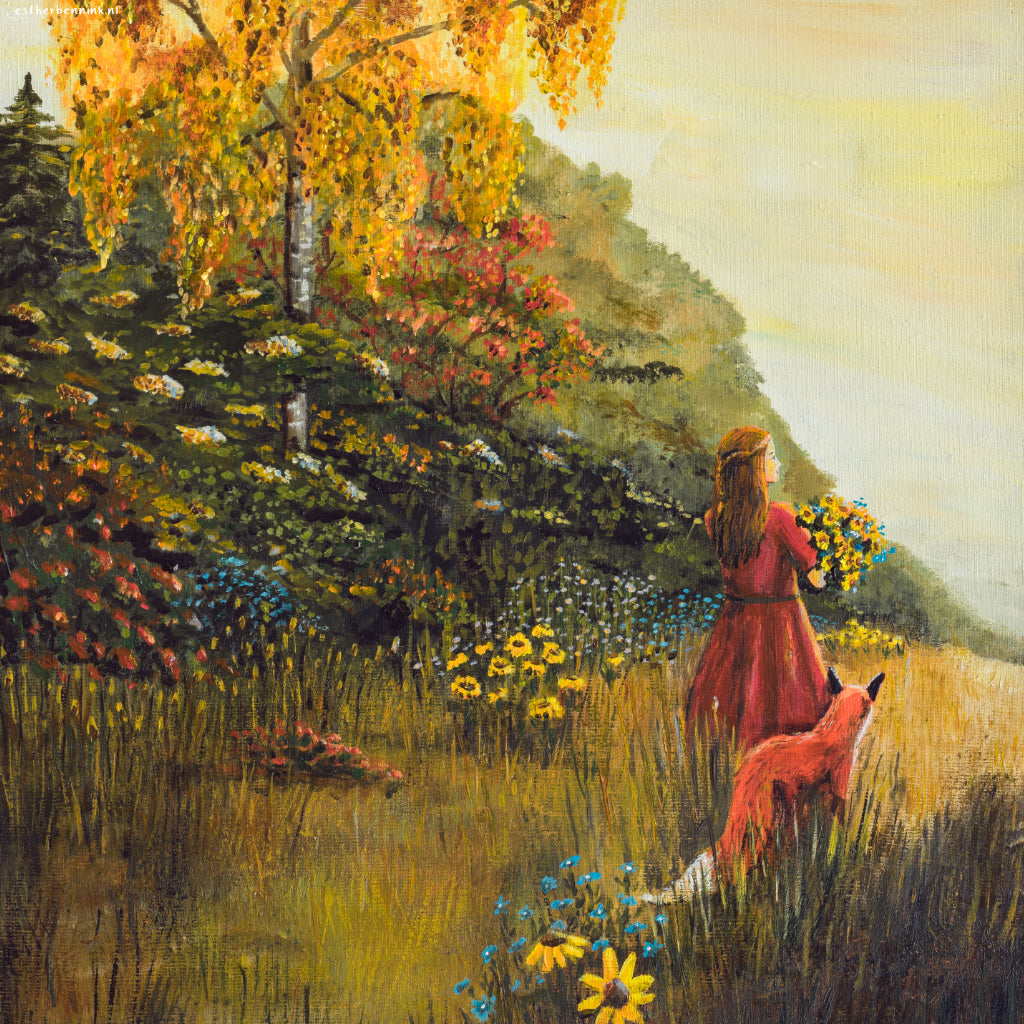
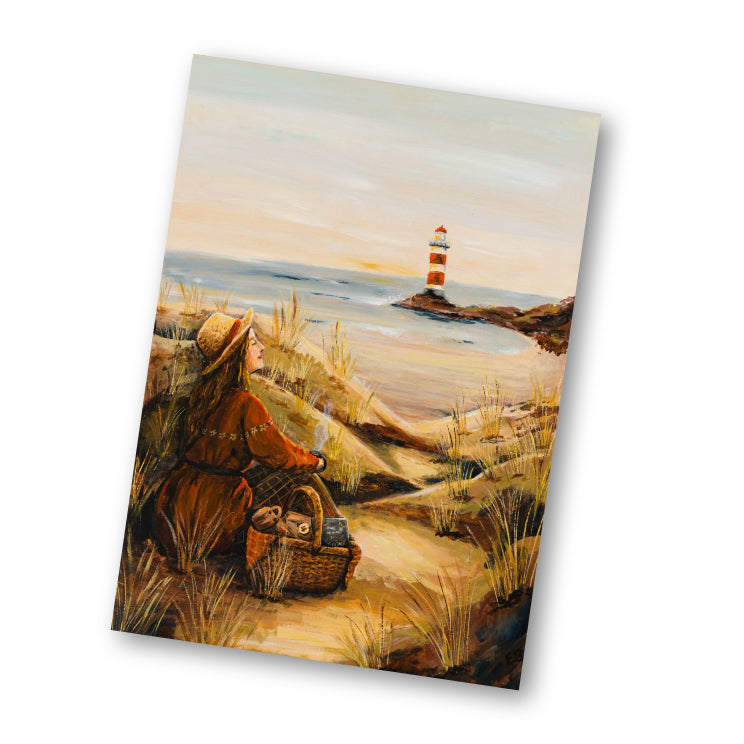
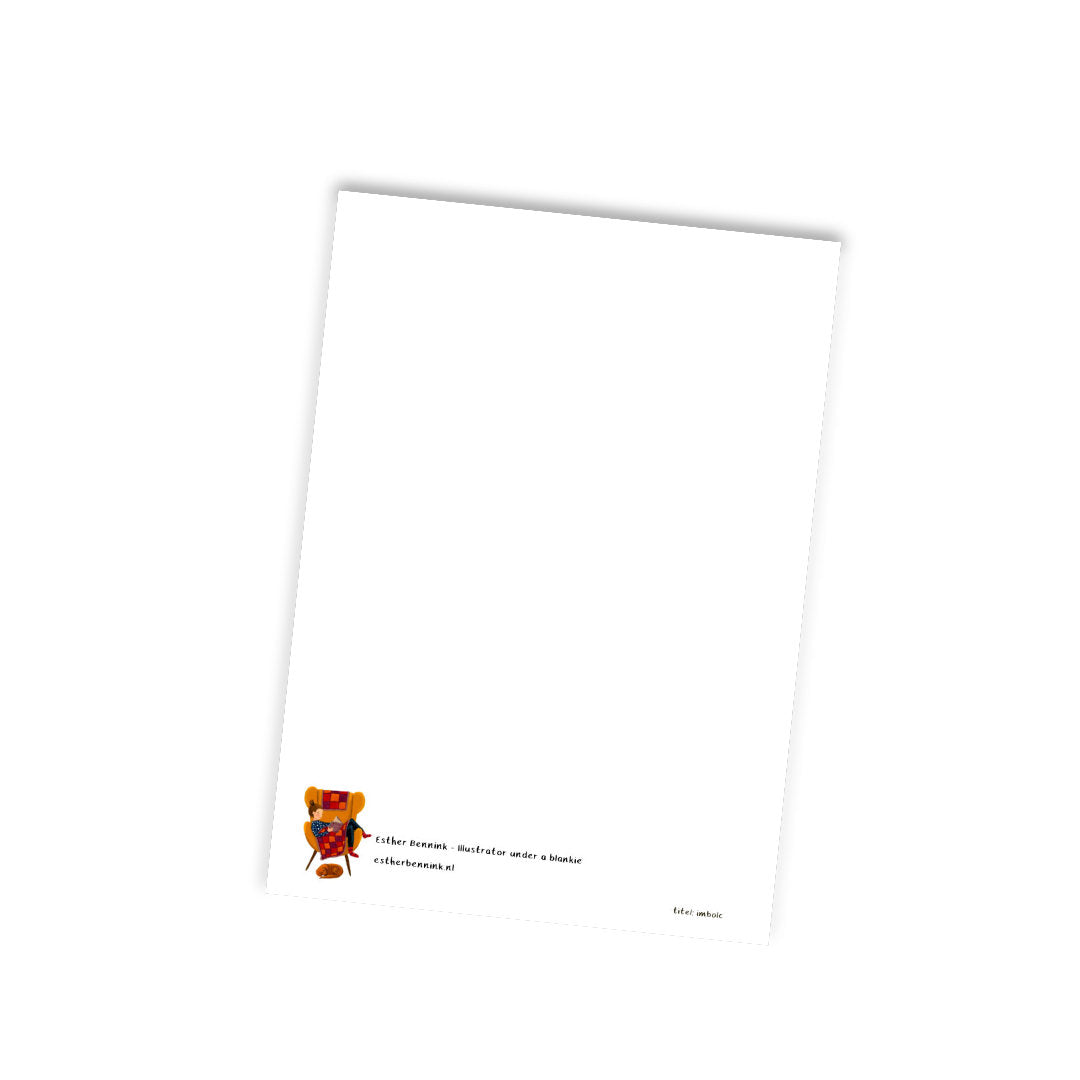
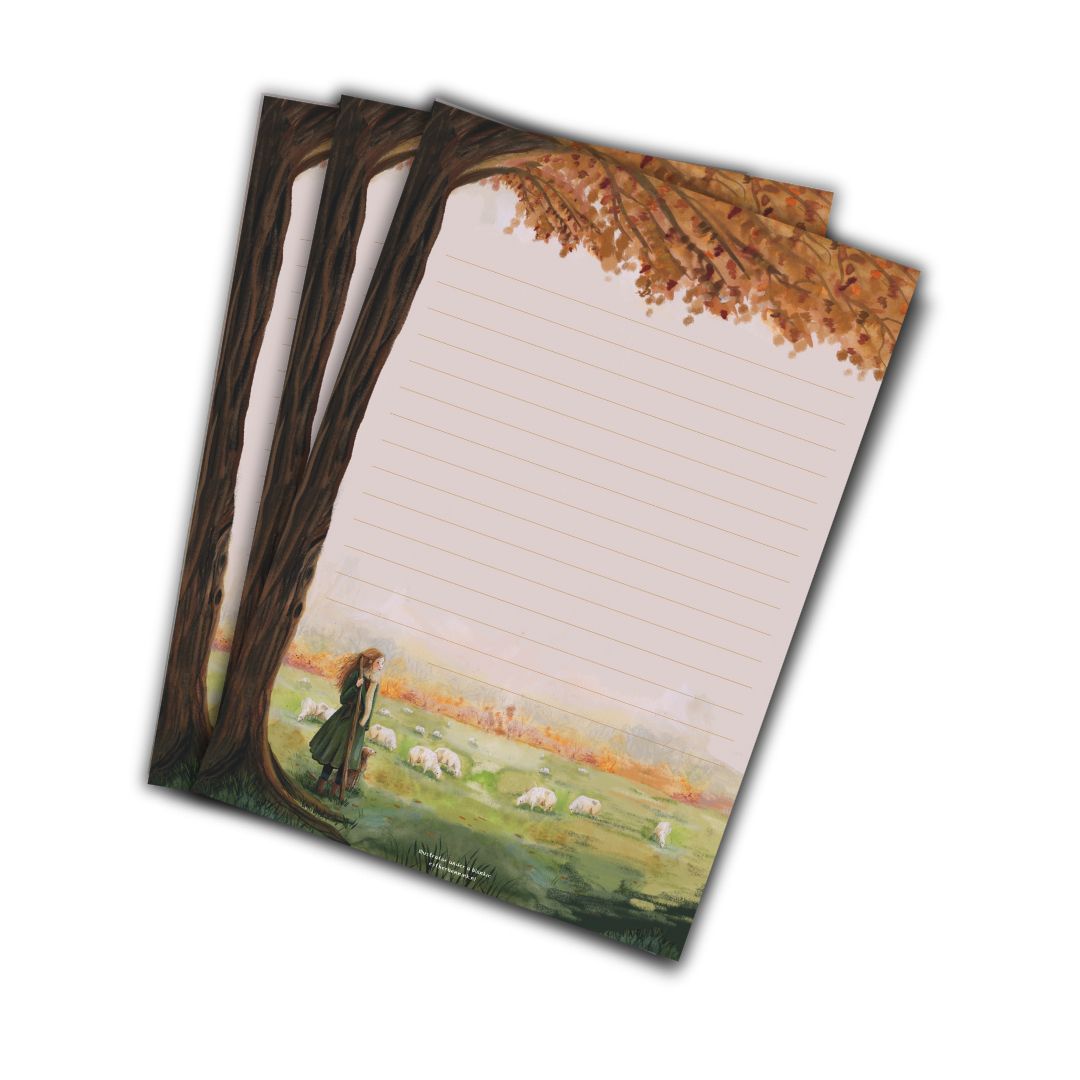
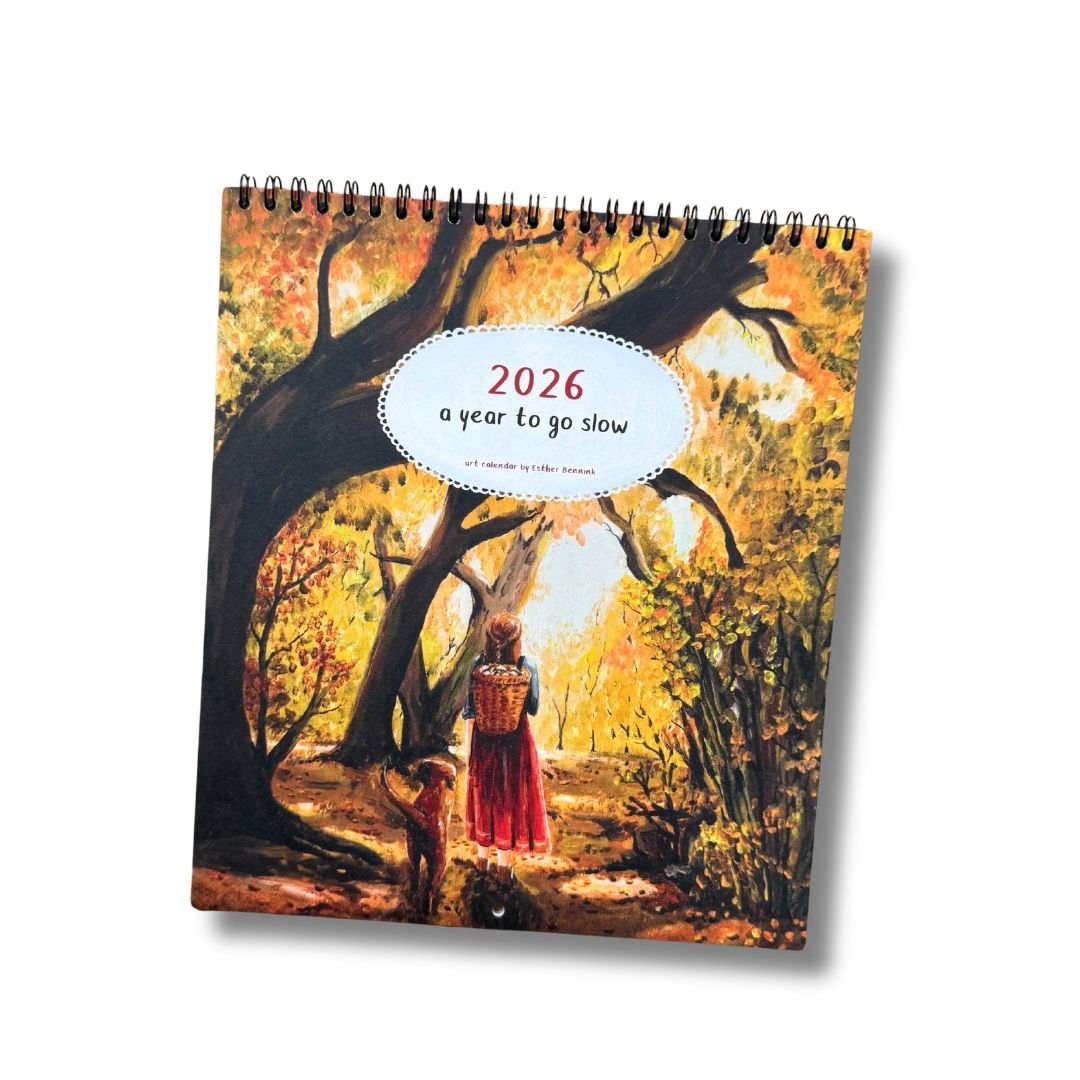
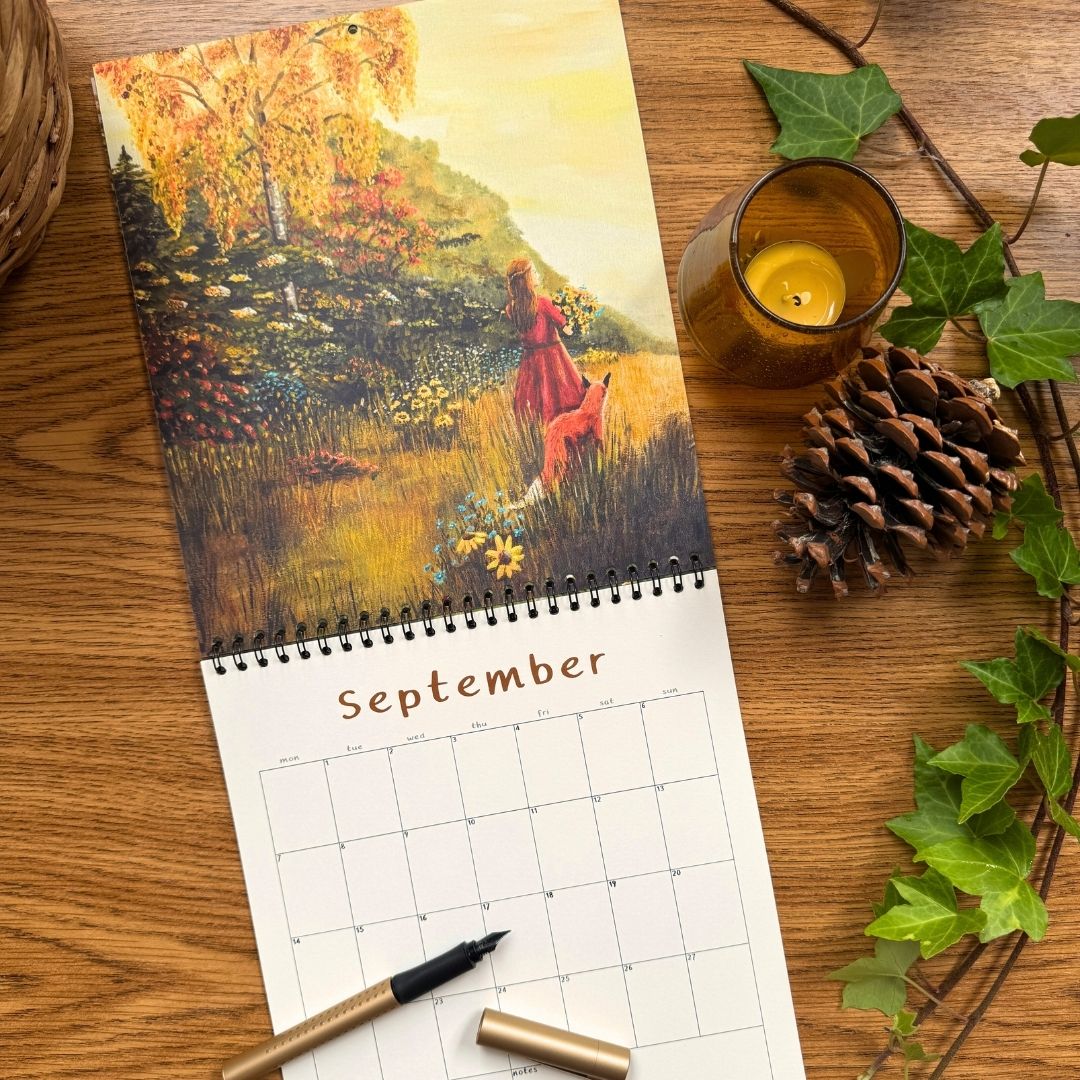
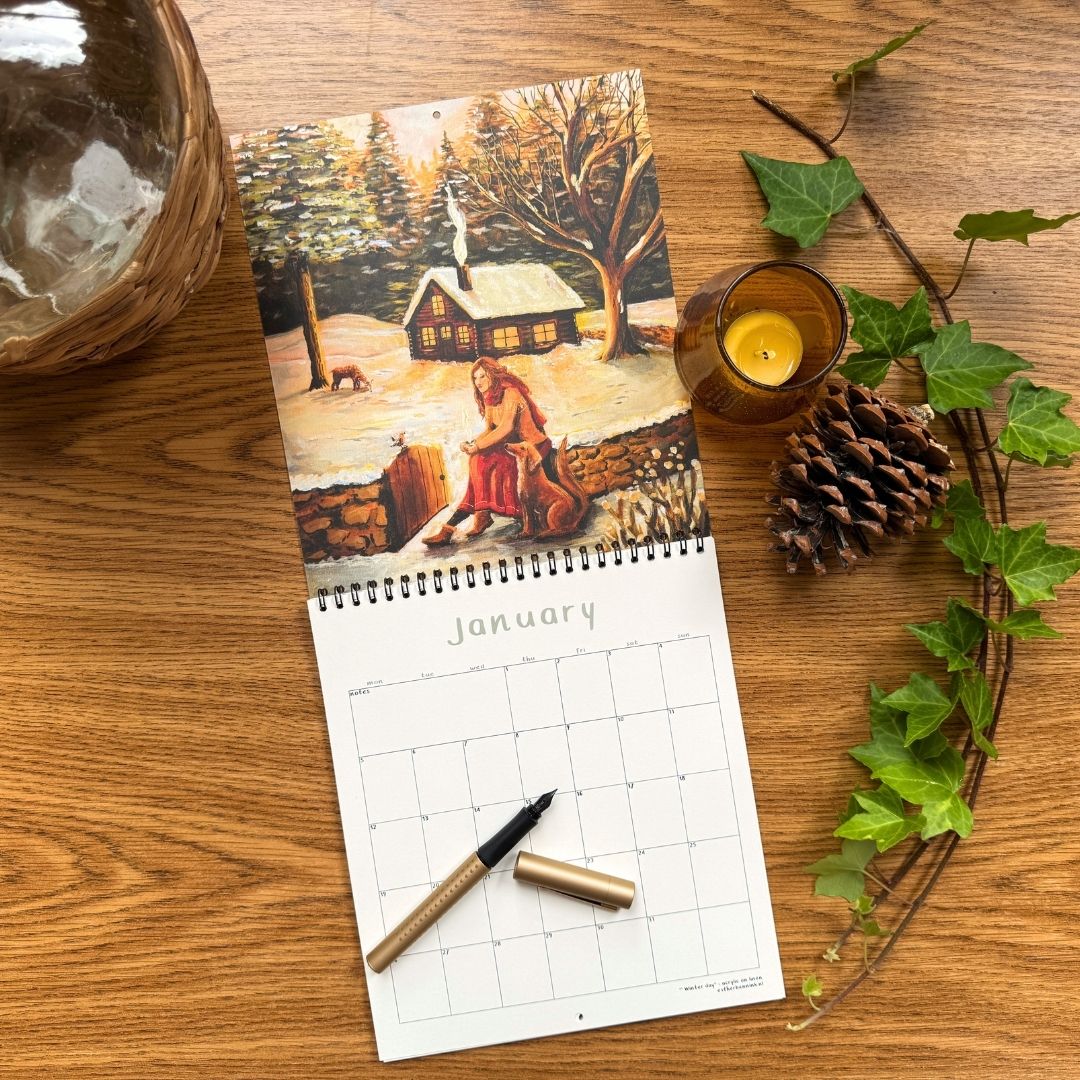
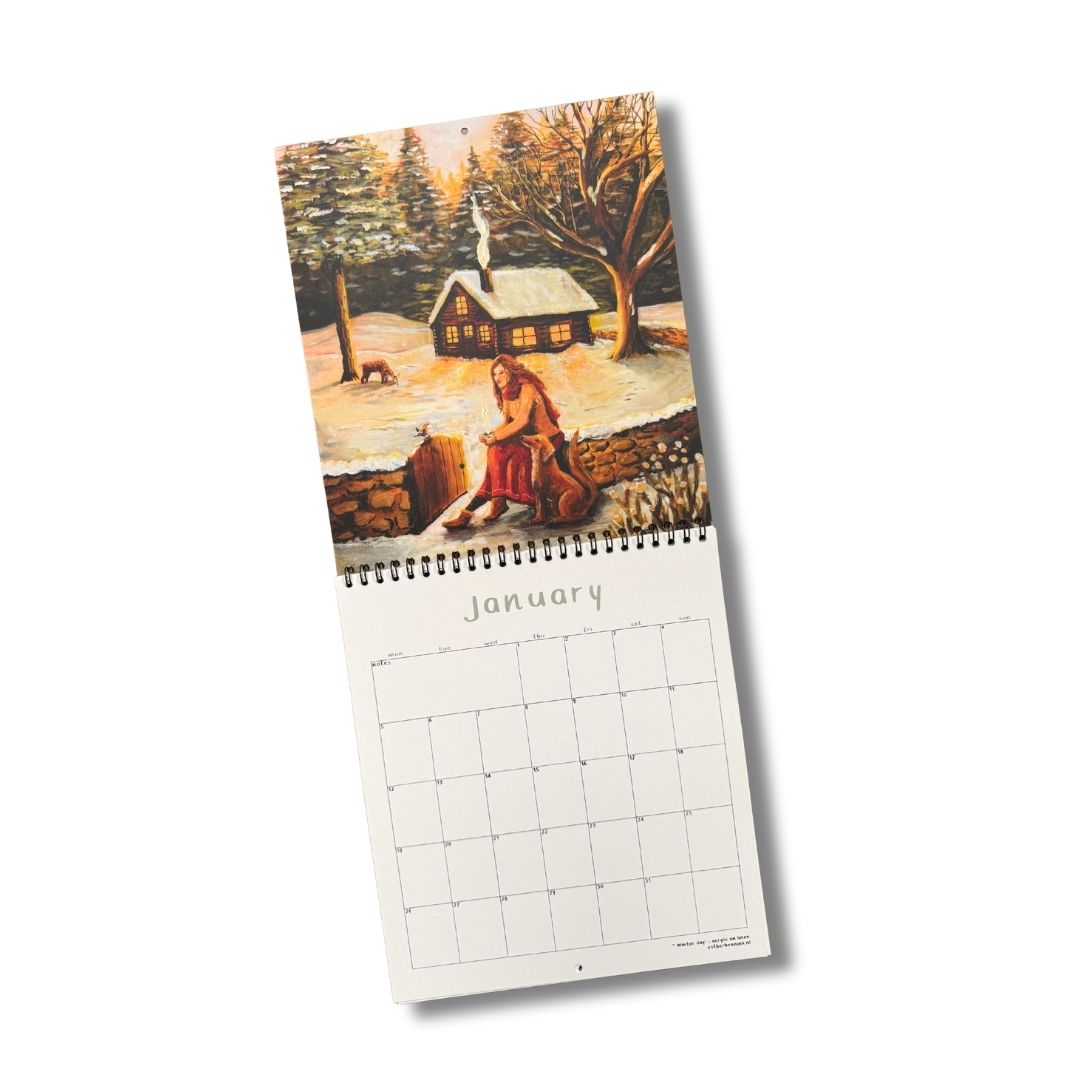
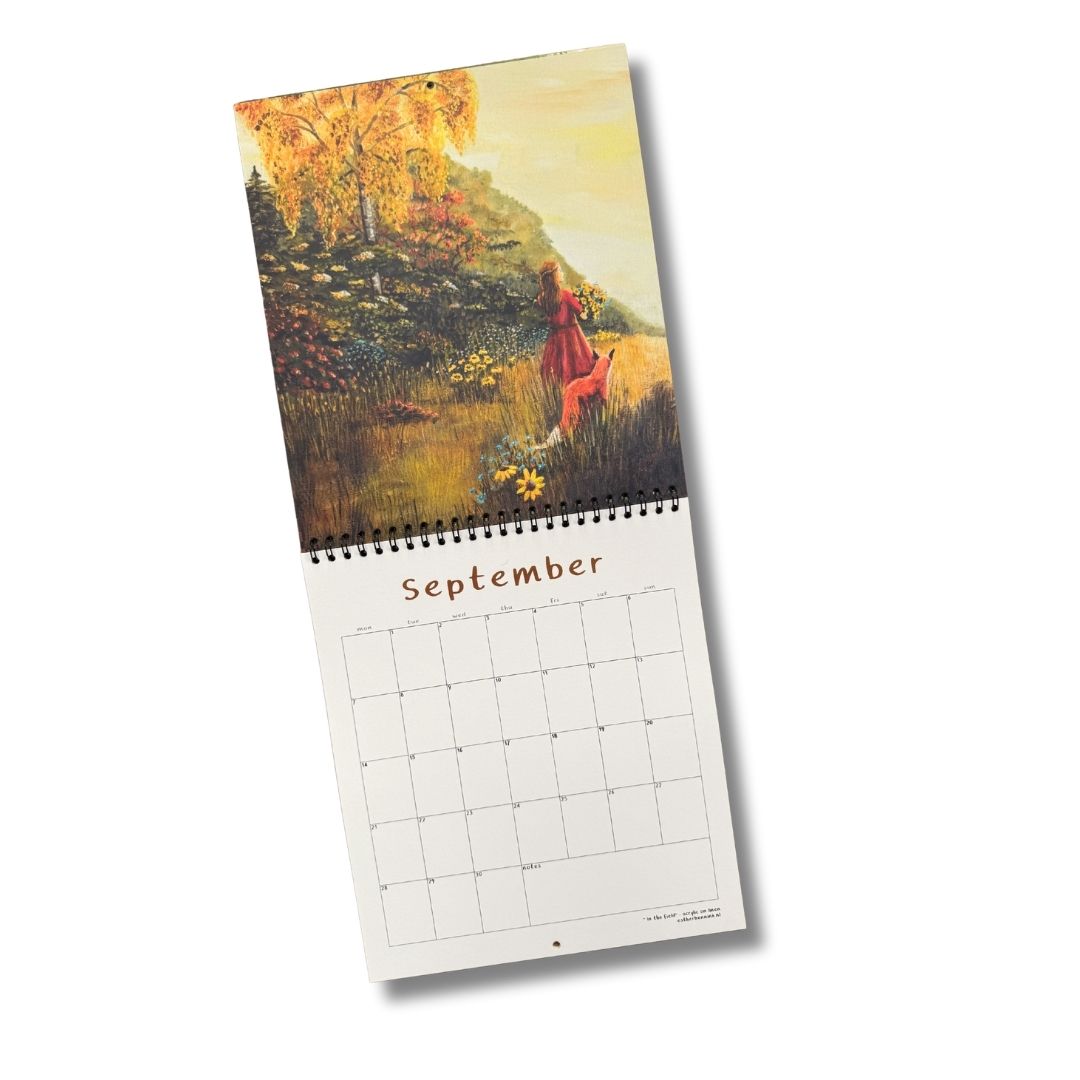
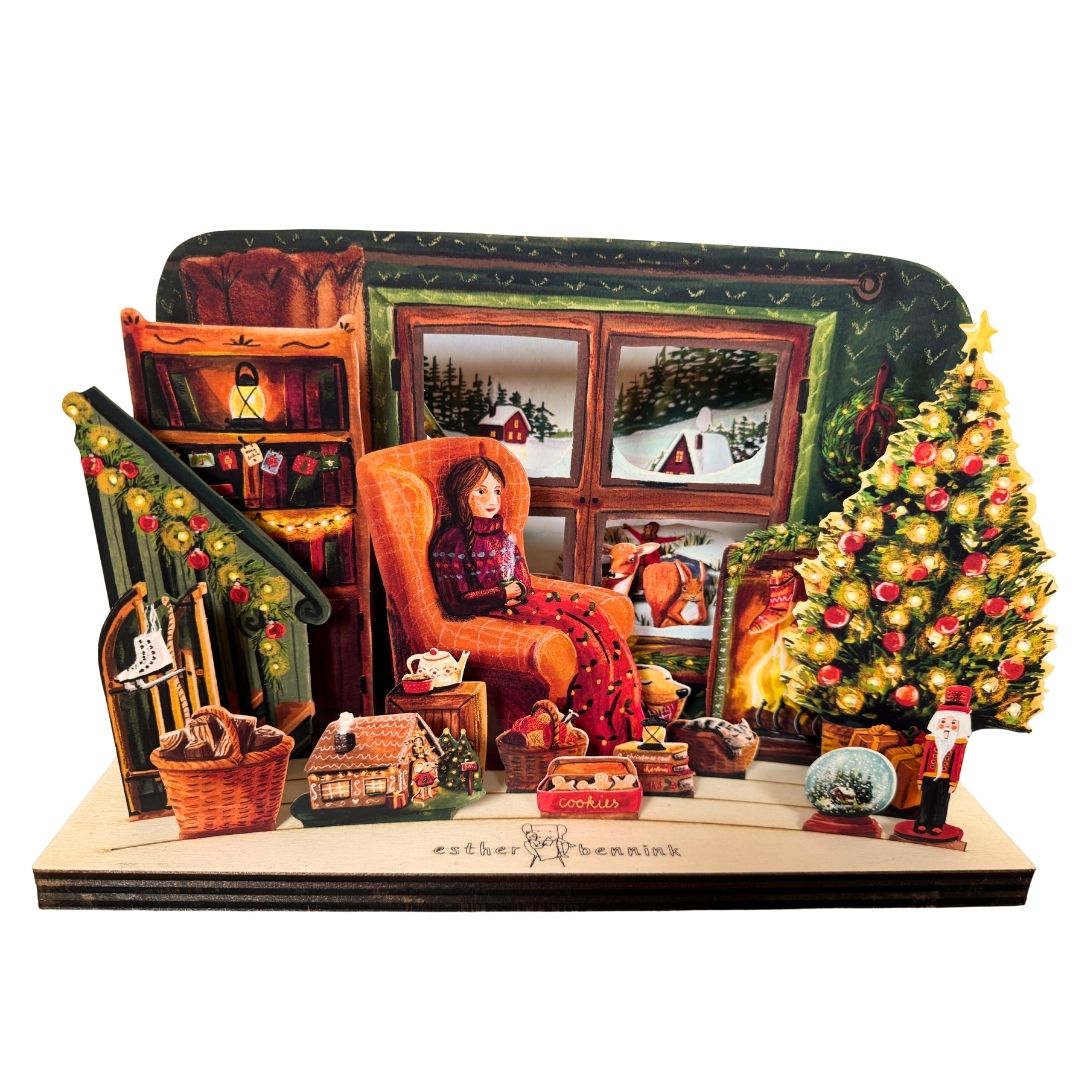
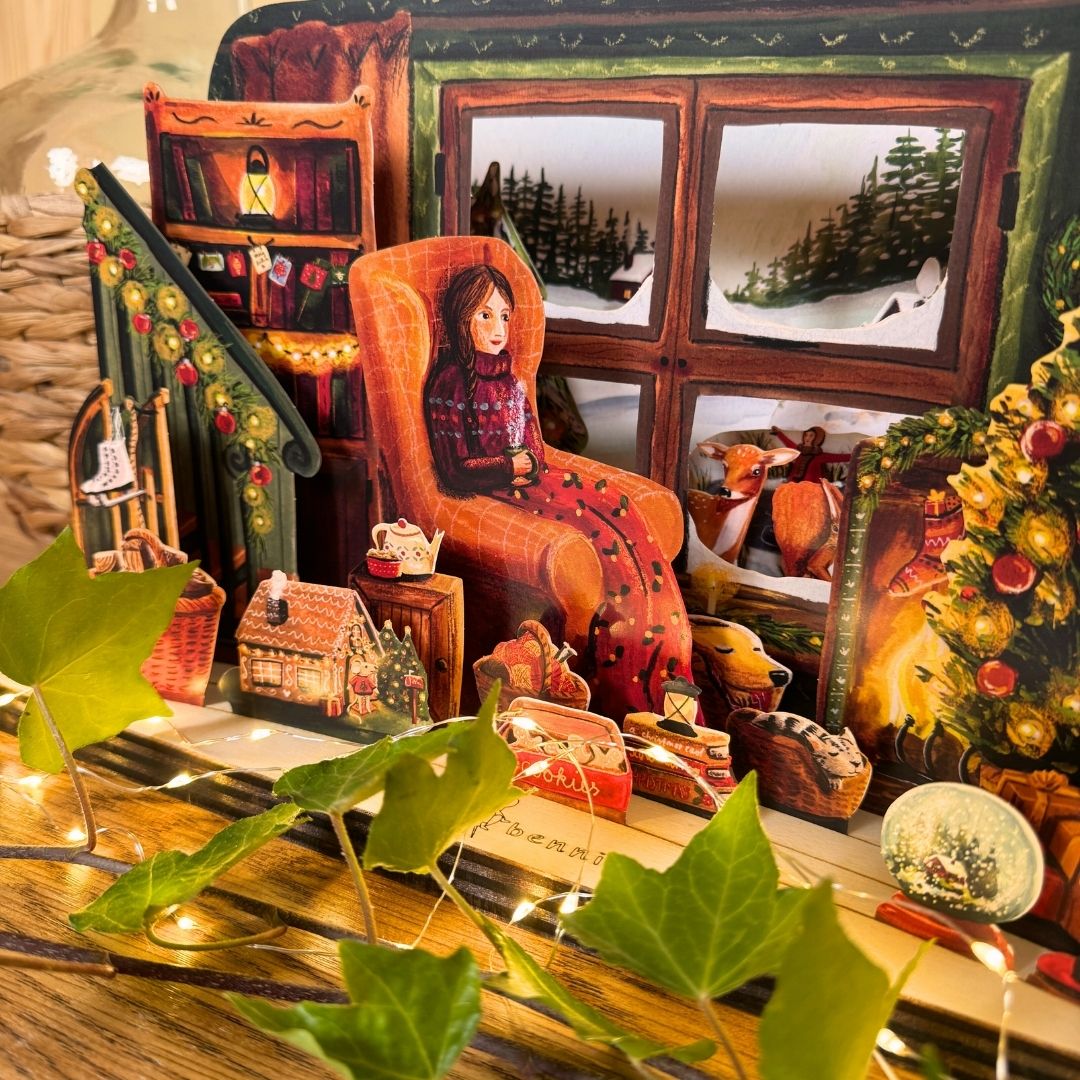
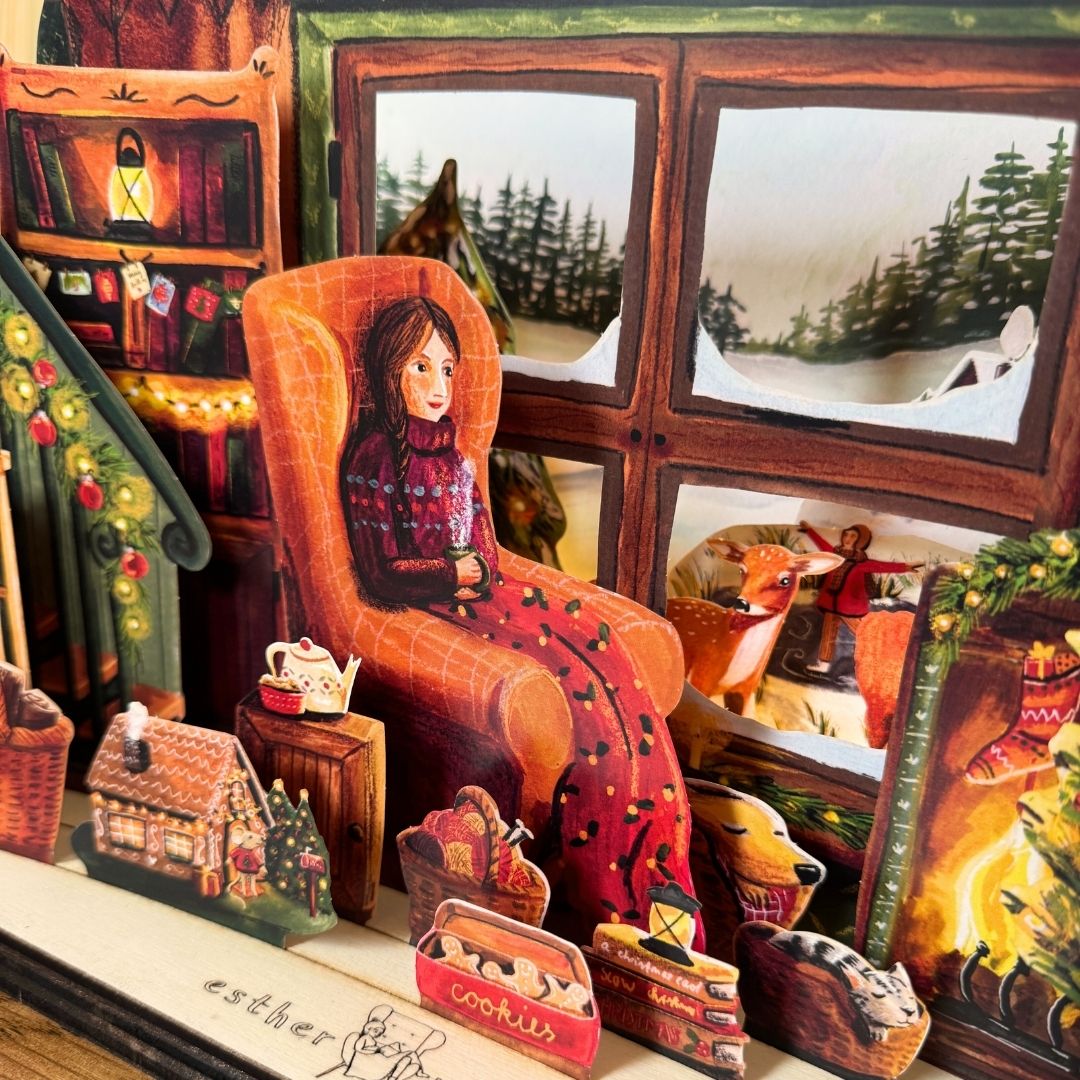
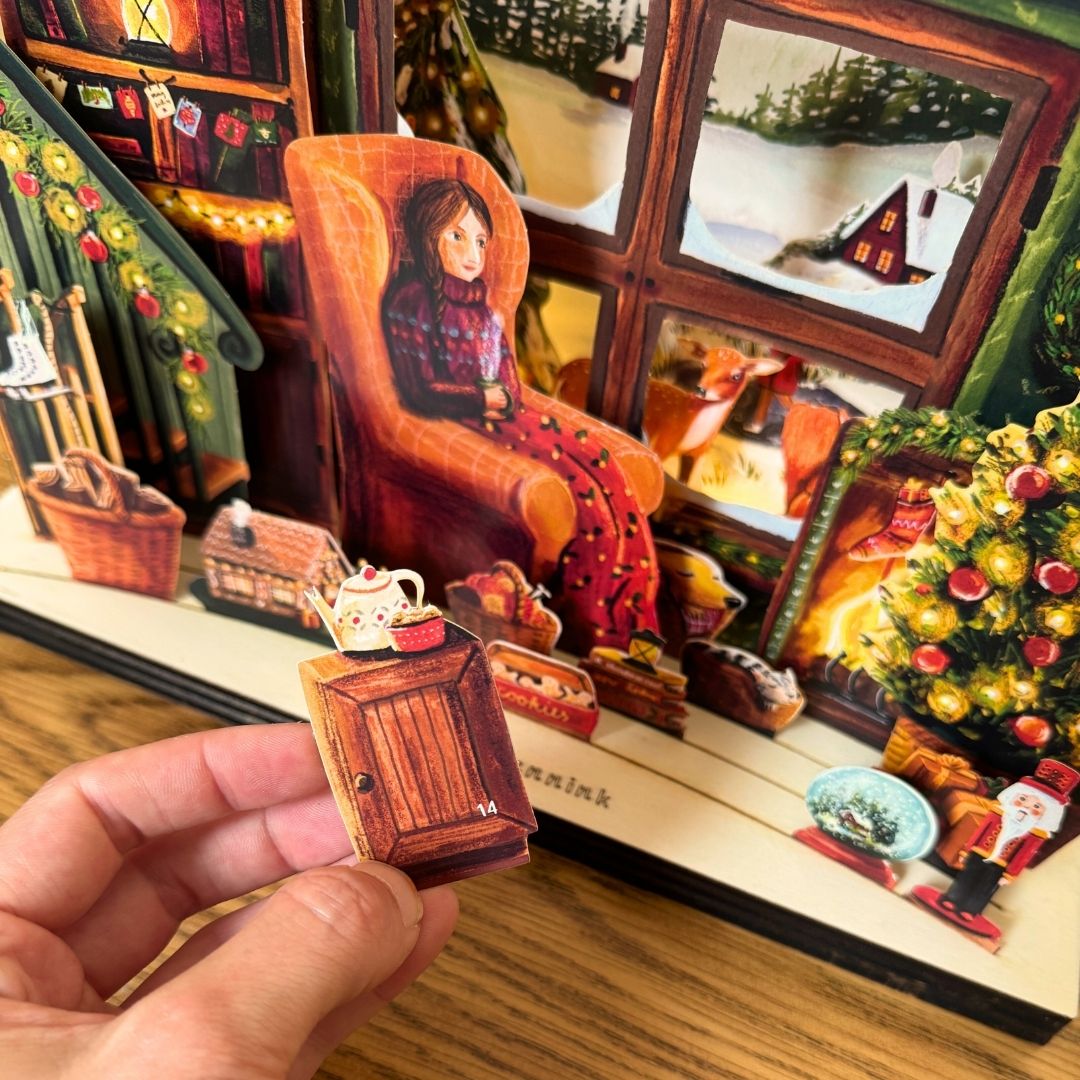
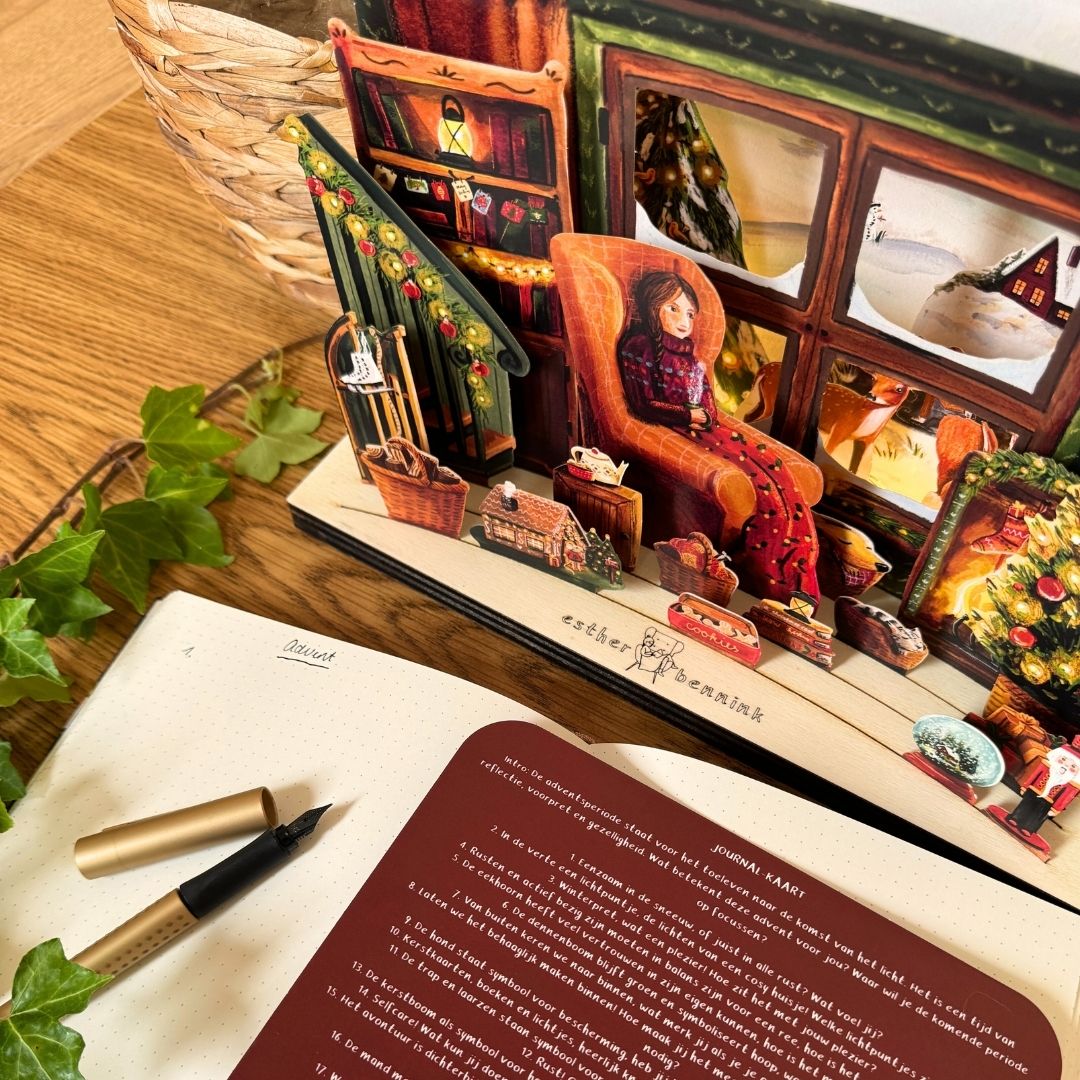
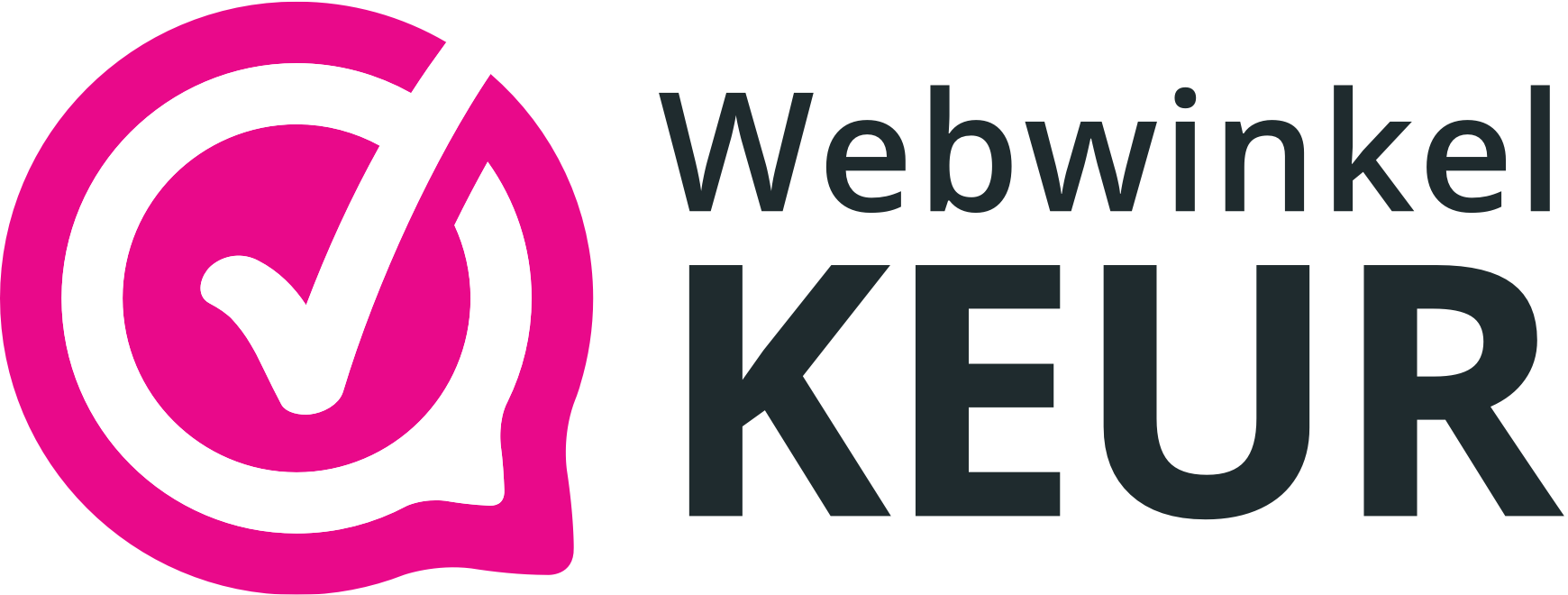
0 comments